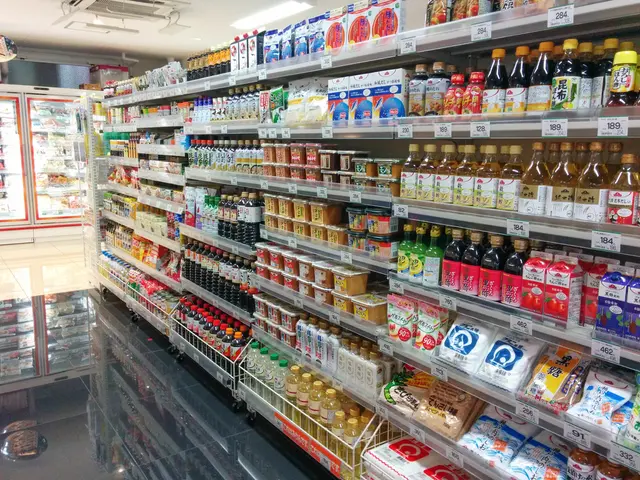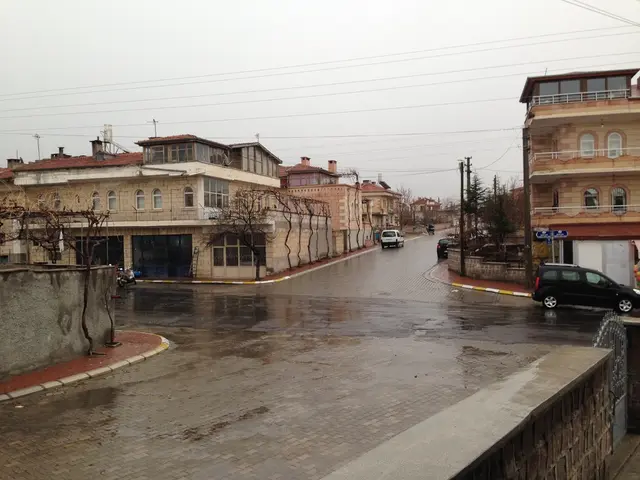Steer Clear of Deceptive Travel Schemes: A Guide to Avoiding Tourist Traps
Traveling to new destinations can be an exhilarating experience, but it's crucial to stay vigilant to avoid falling prey to various travel scams. One of the most common scams is the "broken meter" taxi ride, where unethical taxi drivers claim their meter is on the fritz and demand exorbitant fares.
To avoid this, always use legit taxi companies and discuss the fare before getting in the vehicle. Another widespread scam is the imposter cop, where individuals posing as cops approach tourists and demand to search their belongings or inspect their documents. Remain cautious and verify their credentials before complying with any requests.
Be aware of fake tour guides charging high fees for subpar or non-existent tours and phony currency exchange services offering poor exchange rates or hidden charges. Shop around for reputable tour operators, research the average prices for attractions, and only exchange currency at banks or recognized exchange centers.
Stay alert in crowded tourist areas and keep a close eye on your belongings. Pickpockets often operate in markets, public transportation, and popular attractions, blending in and taking advantage of distracted tourists. Keep your valuables close and avoid displaying expensive items. Be wary of anyone who approaches you unexpectedly with offers or requests for personal information.
If you find yourself in a compromising situation, stay calm and assess the situation. Report the scam to local authorities, your accommodation provider, and your embassy or consulate if necessary. By staying informed, cautious, and proactive, you can ensure a safer and more enjoyable travel experience.
For additional travel tips, check out this handy guide on how to make a great first impression and acing that job interview in your new destination!
FAQs
What are common travel scams to avoid?
Some common travel scams to avoid include taxis with faulty meters, counterfeit police officers, fake tour guides, overpriced attractions, and shady currency exchange services.
How can I avoid travel scams?
Stay informed about local scams and fraud trends at your destination, research reputable service providers, verify their legitimacy, use secure payment methods, and remain vigilant and cautious, particularly in crowded tourist areas.
What should I do if I encounter a travel scam?
Stay calm, assess the situation, and report the scam to local authorities, your accommodation provider, and your embassy or consulate if necessary.
Are there specific scams to be aware of in popular tourist destinations?
Yes, popular tourist destinations often have unique scams to watch out for, such as fake travel agencies and sightseeing tours, accommodation fraud, fake websites, and taxi and car rental scams.
Additional Tips
- Keep Valuables Concealed: Use a money belt, hidden pockets, or other secure storage solutions to keep your belongings safe and out of reach of pickpockets.
- Research Backgrounds: Verify the backgrounds of tour operators, accommodation providers, and currency exchange services by checking their ratings, reading reviews, and asking for recommendations.
- Avoid Displaying Wealth: Minimize the appearance of expensive items like jewelry or electronics to attract fewer unwanted attentions from scammers and thieves.
- Stay Informed About Current Scams: Keep up-to-date with the latest travel scams and fraud trends by following travel safety alerts and advisories from your government and reputable travel resources.
To protect yourself from travel scams like faulty taxi meters or counterfeit police officers, always use legitimate taxi companies and discuss fares before getting in. It's also wise to research tour operators and currency exchange services thoroughly and avoid displaying expensive items in crowded tourist areas. If you encounter a potential scam, remain calm and report the situation to local authorities, your accommodation provider, and your embassy or consulate if necessary. Keep valuables concealed, verify backgrounds, and stay informed about current scams to ensure a safer and more enjoyable travel experience.








